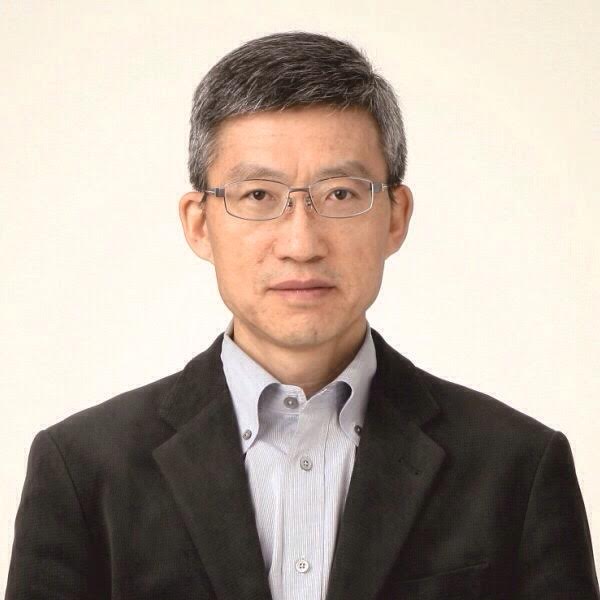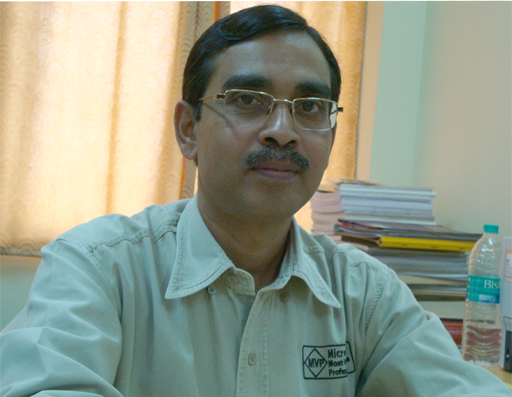Global Initiative on Academic Network (GIAN)
Advances of Neuro-Technology and its Applications to Brain-Machine Interaction
15-20 January, 2018
Overview
Neurotechnology is an exciting frontier, opened up by our ability to probe our brain, from cells to the human mind. In addition, we now have the tools to diagnose and treat neural diseases. Now, we can dream about interfacing to human brain and mind, opening up many challenging research problems, opportunities to innovate and translation, and dream and speculate about human brain and mind. This GIAN program will provide the foundational knowledge (basic and clinical neuroscience, engineering principles) as well as overview of many cutting-edge technologies and their clinical translation. The course will educate the students about neuro-diagnostic and therapeutic technologies, which contribute to improving the human health. The course will also introduce the students to emerging frontiers of brain interface technologies, brain inspired (neuromorphic) technologies, and the frontier of brain machine interface. Lectures will be followed by discussions and case studies, and selective quizzes will be used to review the learning, and to put forward provocative questions for discussions. Armed with this knowledge, the students may explore careers in the field of neurotechnology, from engaging in deep discovery, coming up with inventions, helping solve some human health problems, or identify problems that may lead to fundamental discoveries about human brain and mind.
Objectives
The primary objectives of the course are as follows:
This course aims to give an overview of the current advancements on Neuro-technology and BCIs. The course also covers the neuro-technology frontiers and various neural signal processing techniques for BCI. Demonstration on some BCI application will also be given. The lectures and tutorials under this program will be delivered by the internationally renowned faculty members in the field from India and abroad. After the successful completion of the course, the participants will be able to apply their thoughts to many applications of societal needs.
The courses will primarily be for credit and cover 18 hours lectures and 7 hours tutorials for a typical 1 credit course over a period of one week covering 5 working days and have regular evaluation mechanisms as per the norm of the Indian Institute of Technology Kharagpur and GIAN program.
Lecture Schedule
| Date/ Time |
09:00 10:00 |
10:00 11:00 |
11:00 12.00 |
12:00 13:00 |
13:00 14:00 |
14:00 15:00 |
15:00 16:00 |
16:00 17:00 |
17:00 18:00 |
|---|---|---|---|---|---|---|---|---|---|
| 15.01.2018 | Lunch Break |
Registration |
GIAN Overview, Questions & Challenges (DS) |
1:Human Engaged Computing (XR) |
|||||
| 16.01.2018 | 2: Neurophysiology (NVK) |
3: Biosignals (NVK) |
4:Neurological Monitoring (NVK) |
Demonstration (Industry) |
|||||
| 17.01.2018 | 5:Foundation of EC & Electronics (NVK) |
6:NeuroMEMS (NVK) |
7:Neurodevices (NVK) |
8:Cognitive Psychology (KR) |
|||||
| 18.01.2018 | 9:Implantable Electronics (NVK) |
10:Neural Interface (NVK) |
11:Neurophotonics (NVK) |
12:Vigilance Detection (DS) |
|||||
| 19.01.2018 | 13:Neuromorphic Engineering (NVK) |
14:Neuroprosthesis (NVK) |
15:Cognitive Engineering (NVK) |
16:Motor Imagery (DS) |
|||||
| 20.01.2018 | 17:Global BRAIN Initiatives (NVK) |
Valedictory Program |
|||||||
Lecture Details
- Lecture 1: Human Engaged Computing
- Lecture 2A - Neuroengineering: Brain, Mind and Machines Lecture 2B - Cell Biology – Neuron Lecture 2C - Introductory Neuroscience: Neurophysiology
- Lecture 3A: Introductory Neuroscience: Neurobiology of Disease Lecture 3B: Introduction to Biopotentials and Biosignals
- Lecture 4A: Neurological Monitoring: EEG Lecture 4B: Neurological Monitoring: Evoked Potentials
- Lecture 5A: Foundations of Electrical Circuits Lecture 5B: Foundations of Electronics
- Lecture 6A: Microelectronics, Microfabrication Lecture 6B: NeuroMEMS
- Lecture 7A: Neurodevices: Neurodiagnostic Devices Lecture 7B: Neurodevices: Neurotherapeutic Devices Lecture 7C: Neurodevices: Neural Electrodes
- Lecture 8: Cognitive Psychology
- Lecture 9A: Implantable Electronics Lecture 9B: Neuromodulation Devices
- Lecture 10A: Neural Interface – Peripheral (Sensory) Lecture 10B: Neural Interface – Peripheral (Motor) Lecture 10C: Neural Interface – Visceral
- Lecture 11A: Neurophotonics - Introduction Lecture 11B: Neurophotonics - Advanced Lecture 11C: Neurophotonics - Applications
- Lecture 12: Vigilance detection using ERPs
- Lecture 13A: Neuromorphic Engineering - Robotics Lecture 13B: Neuromorphic Touch Lecture 13C: Neuromorphic Vision
- Lecture 14A: Brain Machine interfaces - Noninvasive (EEG) Lecture 14B: Brain Machine Interfaces - Invasive (ECoG) Lecture 14C: Brain Machine Interfaces - Neural Spikes/Action Potentials Lecture 14D: Neuroprosthesis
- Lecture 15A: Cognitive Engineering Lecture 15B: Tools and Techniques for Probing the Mind
- Lecture 16: Motor Imagery based BCI
- Lecture 17A: Valedictory Lecture (Summary) Lecture 17B: Grand Challenges; Global BRAIN initiatives
Faculty Members
| Faculty | Short Biography |
|---|---|
 |
Prof. Nitish V. Thakor is a Professor of Biomedical Engineering, Electrical and Computer Engineering and Neurology at Johns Hopkins University since 1983. He has also been the founding Director of Singapore Institute for Neurotechnology (SINAPSE) at the National University of Singapore since 2012. Prof. Thakor’s technical expertise is in the field of Neuroengineering, where he has pioneered many technologies for brain monitoring to prosthetic arms and neuroprosthesis. He is an author of 328 refereed journal papers (H Index 62; I-10 Index 210) , more than a dozen patents, and co-founder of 3 companies. He is currently the Editor- in-Chief of Medical and Biological Engineering and Computing, and was the Editor-in-Chief of IEEE TNSRE from 2005-2011. Prof. Thakor is a recipient of a Research Career Development Award from the National Institutes of Health and a Presidential Young Investigator Award from the National Science Foundation, and is a Fellow of the American Institute of Medical and Biological Engineering, IEEE, Founding Fellow of the Biomedical Engineering Society, and Fellow of International Federation of Medical and Biological Engineering. He is a recipient of the award of Technical Excellence in Neuroengineering from IEEE Engineering in Medicine and Biology Society, Distinguished Alumnus Award from Indian Institute of Technology, Bombay, India, and a Centennial Medal from the University of Wisconsin School of Engineering. |
 |
Prof. Xiangshi REN is a professor in the School of Information and Director of the Center for Human-Engaged Computing (CHEC) at Kochi University of Technology, Japan. He is founding president and honorary lifetime president of the International Chinese Association of Computer-Human Interaction (ICACHI). He has been named as one of the Asian Human-Computer Interaction Heroes in ACM CHI 2015. He was a visiting professor at the University of Toronto, visiting faculty researcher at IBM Research (Almaden), and visiting/guest/chair professor at several universities in China. Currently, he is an adjunct professor at Jilin University, Beijing Normal University and University of Science & Technology Beijing. He is a Senior Member of the ACM and a Senior Member of the IEEE. Prof. Ren has been working on fundamental studies in the field of Human-Computer Interaction (HCI) for over twenty-five years. His research interests include all aspects of human-computer interaction, particularly human performance models, pen-based interaction, multi-touch interaction, eye-based interaction, haptic interaction, gesture input, game interaction, user interfaces for older users and for blind users. He and his colleagues have established a unique research framework based on information technology, incorporating methodologies such as human performance modeling, developing new algorithms, conducting user studies, and system testing and applying HCI theory to applications. Recently, he and his colleagues have established a new philosophical foundation for rethinking the relationship between humans and computers - Human-Engaged Computing (HEC) which refers to synergism between human capacities and technological capabilities. This new concept (HEC) has already been briefed in an IEEE article (Computer, August 2016), and presented in a panel at ACM CHI 2017, which is highly recognized by HCI pioneers and researchers. Prof. Ren has presented talks at various institutions and international conferences. He often serves as a reviewer, associate editor, guest editor, conference/program chair or program/steering committee member. He was recently the general conference co-chair of an International Symposium on Interactive Technology and Ageing Populations 2016 (IxAP 2016) and the conference chair of an International Workshop on Human-Engaged Computing (IWHEC 2017). More details information about Prof. Ren can be found at here. |
 |
Dr. K. Ramchandran is the Director, DIPR with effect from 01 Mar 2013. He did his Post-Graduation in Applied Psychology from Bharathiar University, Coimbatore, M.Phil in Psychology from University of Madras and Ph.D. in Psychology from University of Delhi. He has acquired specialization in the areas of Experimental and Human Engineering, Aviation Psychology and Environmental Psychology. The beginnings were of brief stints at C.M.C, Vellore as a Psychologist, a Consulting Psychologist at Psycho Behavioural Clinic, Madras and a Career Counsellor at the Students Counselling Bureau in the University of Madras. He joined the Defence Institute of Psychological Research under DRDO as Scientist 'B' in DRDO in the year 1989 and since then has been associated with projects in the area of Experimental and Human Engineering, Aviation Psychology and Environmental Psychology. His involvement has brought out various tests and aids for psychological adaptation of Troops in High Altitude Siachen Glacier areas and for scientific teams in Antarctica. As Programme Director for the 'Series Production of Computerized Pilot Selection System (CPSS), unique to a life sciences lab, he provided landmark achievement in the field. The agreement between the Indian Air Force and DRDO with respect to the Computerized Pilot Selection System marked DIPRs exceptionality as Life Sciences Lab. The vast experience and the credentials invited him to be a member in Human Engineering Panel and Aeronautical Development Research Board. His growth has the blend of rich and quality expe-rience. The 'DRDO Technology award for the year 2003' and the 'Agni Award for Excellence in Self Reliance 2005' was awarded to him for his scientific contributions. He was also awarded the 'Alumni of the year 2009' by PSG and Sons' Charities, Coimbatore. He is the life membership of the Indian Academy of Applied Psychology and Madras Psychologist Association. Under his leadership the institute has been awarded 'Titanium Trophy - 2014' of DRDO. |
 |
Prof. Debasis Samanta is an Associate Professor in the Department of Computer Science and Engineering, Indian Institute of Technology Kharagpur. Prof. Samanta is actively working in the field of Human Computer Interaction. He aims to develop efficient interaction mechanisms for people with special needs such as motor impaired people and people with other disabilities, illiterate people, etc. He has developed multi-modal interaction techniques, text entry mechanisms in Indian language, which are new of their kind to bridge the digital divide. Currently, he is working toward the development of next generation hands-free and touch-free interaction mechanism using brain computer interfaces. He and his research team are in the process of developing BCI-HCI lab in IIT Kharagpur, a unique lab facility in India. He is an author of 3 books and more than 60 journals of international repute. He is currently Honorary Member of editorial Board of the International Journal of Biosciences and Technology, and member of Editorial Board of the International Journal of Communication Networks and Distributed Systems (IJCNDS), Inderscience Publishers, U.K. He is the recipient of Best Article of the Year Award by Computer Society of India, Best Paper award by 8th ADCOM Conference, IIT Guwahati, Microsoft Valued Professional award by Microsoft, USA, 2007 and Author of the Best Selling Book by Prentice Hall of India, New Delhi. More details information about Prof. Samanta can be found at here. |
Prospective participants
- This course is designed for B.Tech. / M.Tech. / Ph.D. students of Biotechnology, Computer Science and Engineering, Electrical Engineering, Electronics Engineering, Mechanical Engineering and Medical Science (with special interest), who are likely to be benefited by learning the fundamental aspects of Neuro-technology and its diverse applications.
- Faculty members and Research Associates from reputed academic institutions and practitioners from industries are also welcome.
Registration procedure
- (a) The interested researchers, faculties and students are requested to register through the GIAN portal: http://www.gian.iitkgp.ac.in/GREGN/index.
- (b) Shortlisted candidates may pay the fee through the online payment gateway: https://erp.iitkgp.ernet.in/GIANApplications/Login.jsp or through NEFT/RTGS transfer to 'CEPGIAN' account or DD in favour of 'CEP-GIAN' account. The bank details are given here .
- (c) Kindly bring the proof of payment at the registration desk on 15th January, 2018 at 2:00 PM.
Registration fees
| Category | Fees | Participants from abroad | 500 USD | Industry/Research Organizations | Rs. 20000 | Faculties from academic institutions | Rs. 5000 | Students/Research scholars from academic institutions | Rs. 1000 |
The above fee include all industrial materials, computer use for tutorials and assignments, laboratory equipment usage charges, 24 hour free internet facility. The participants will be provided with accomodation on payment basis.
Important dates :
- Last date for online registration: 07 January, 2018
- Confirmation of registered participants: 08 January, 2018
- Program: 15-20 January, 2018
- Venue Department of CSE, IIT Kharagpur